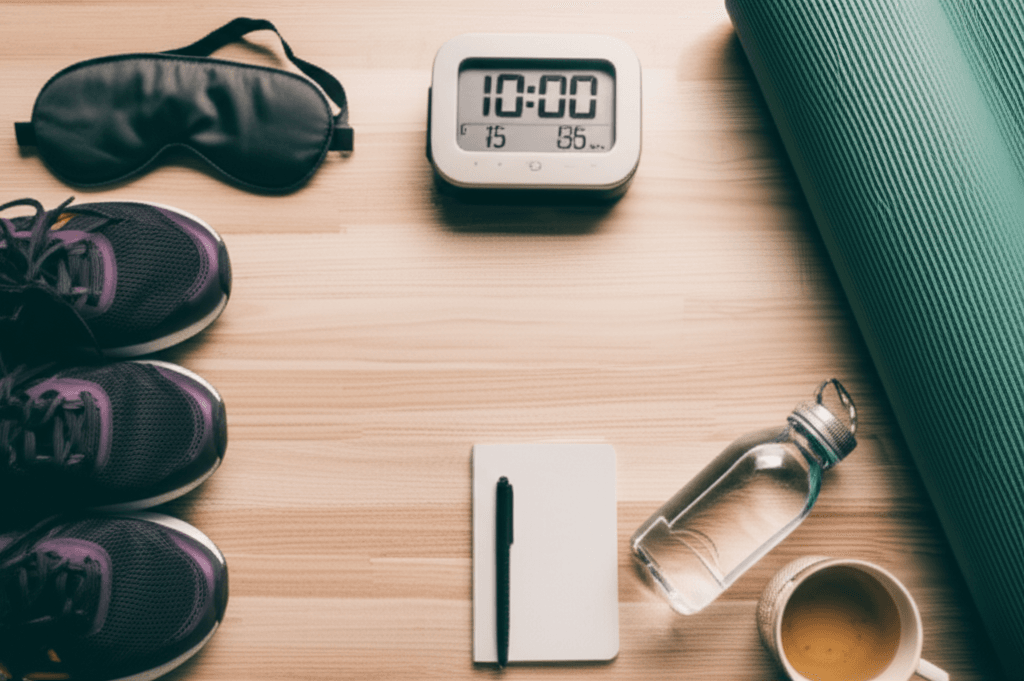In the relentless rhythm of modern life, many often overlook the foundational pillars of well-being: adequate sleep, consistent exercise, and a structured daily routine. These aren’t just isolated components of a healthy lifestyle; they are deeply interconnected forces that synergistically enhance both mental and physical health. Understanding their profound impact and consciously integrating them into your life can unlock a more resilient, energetic, and balanced self.

The Restorative Power of Quality Sleep
Sleep is far more than just a period of inactivity; it’s a critical biological process vital for the repair, restoration, and rejuvenation of both the body and mind. Sacrificing sleep often leads to immediate and noticeable detriments to overall well-being.
Mental Health Benefits of Good Sleep
Quality sleep is a cornerstone of robust mental health. It plays a crucial role in cognitive processes, emotional regulation, and mental resilience. Getting enough sleep helps to reduce stress and improve your mood. It enhances attention, memory, and problem-solving abilities, allowing you to perform daily activities more effectively and think more clearly. Consistent good sleep can bolster emotional resilience and support long-term well-being, while poor sleep can increase the risk of developing mental health issues like depression and anxiety. During sleep, the brain processes information and consolidates memories, essential functions for daily cognitive performance.
Physical Health Benefits of Adequate Sleep
Physically, sleep allows the body to repair and regenerate tissues, regulate hormone levels, and maintain immune function. Sufficient sleep strengthens your immune system, making you less susceptible to illness. It contributes to heart health by regulating blood pressure and reducing inflammation, thereby lowering the risk of chronic conditions such as heart disease, high blood pressure, and stroke. Sleep also influences hormones that regulate hunger, which can aid in maintaining a healthy weight. Athletes, in particular, benefit from adequate sleep for muscle recovery and enhanced performance.

The Invigorating Impact of Regular Exercise
Physical activity is a powerful antidote to many modern ailments, providing a wide array of benefits that span physical and mental domains. Even small increases in physical activity can yield significant improvements.
Elevating Mental Health Through Exercise
Regular exercise is a potent mood booster and stress reducer. Physical activity stimulates the release of brain chemicals like endorphins and serotonin, which can lead to feelings of happiness, relaxation, and decreased anxiety. Exercise can also improve self-esteem, boost confidence, enhance concentration, and provide a healthy outlet for frustrations. Studies indicate that consistent exercise can lower rates of mental illness and can be as effective as some treatments for mild-to-moderate depression and anxiety. Moreover, exercising outdoors can amplify these benefits, leading to higher levels of vitality, enthusiasm, and pleasure.
Physical Health Gains from Consistent Movement
The physical benefits of exercise are extensive and well-documented. Regular physical activity improves cardiovascular health by lowering blood pressure, improving cholesterol levels, and reducing the risk of heart attacks and stroke. It plays a crucial role in managing diabetes, improving bone health, building muscle strength, and increasing endurance. Exercise also contributes to maintaining a healthy weight and can reduce the risk of various cancers. For older adults, it can prevent falls and improve overall physical function. Even moderate physical activity helps send oxygen and nutrients to tissues, making your cardiovascular system work more efficiently and boosting overall energy levels.

The Stabilizing Influence of a Daily Routine
A well-structured daily routine provides predictability and control, acting as a powerful tool for managing stress and promoting overall well-being. It creates a framework that enables individuals to balance work, rest, and self-care.
Mental Clarity and Stress Reduction with Routine
Routines are particularly beneficial for mental health, helping to reduce anxiety and create a sense of stability. When days are structured, individuals often feel more in control and less stressed. By pre-determining certain activities, a routine reduces the number of decisions you have to make daily, which can lessen mental fatigue and free up cognitive resources for more important choices. This predictability fosters mental clarity, improves focus, and enhances emotional resilience. A stable routine also makes it easier to incorporate mindful practices, like meditation, into your day, further boosting mental well-being.
Physical Advantages of Consistent Habits
On the physical front, a daily routine promotes essential healthy habits that might otherwise be neglected. It encourages consistent sleep patterns, making it easier to maintain regular bedtime and wake-up times, which are crucial for quality sleep. A routine can help integrate regular exercise into your schedule, making physical activity a non-negotiable part of your day. Furthermore, routines support healthier eating habits by allowing time for meal planning and preparation, reducing reliance on less healthy, convenient options. Consistency in these areas contributes to a boosted immune system, better cardiovascular health, and optimal physical function.

The Powerful Synergy: Intertwining Sleep, Exercise, and Routine
The true magic happens when these three pillars work in concert. They don’t just offer individual benefits; they create a powerful, positive feedback loop that amplifies overall mental and physical health.
For instance, regular exercise significantly improves sleep quality and can help alleviate sleep-related problems like insomnia by increasing deep sleep duration and reducing the time it takes to fall asleep. Conversely, getting enough quality sleep provides the energy and focus needed to engage in consistent physical activity the next day, preventing a cycle of low energy and inactivity.
A well-structured daily routine acts as the organizational backbone, making it easier to prioritize both sleep and exercise. By setting consistent wake-up times and bedtimes, routines help regulate your body’s natural circadian rhythm, further promoting better sleep. Scheduling dedicated time for workouts ensures that exercise becomes a regular habit rather than an occasional event. This consistent integration of healthy behaviors reduces stress, enhances mood, and makes long-term health goals more achievable.

Building Your Holistic Wellness Framework
To harness the full benefits of sleep, exercise, and a daily routine, consider the following:
- Prioritize Sleep: Aim for 7-9 hours of quality sleep per night for adults. Establish a relaxing bedtime routine and maintain a consistent sleep schedule, even on weekends.
- Embrace Movement: Incorporate at least 30 minutes of moderate-intensity physical activity most days of the week. Find activities you enjoy to make exercise sustainable, whether it’s walking, cycling, or yoga.
- Structure Your Day: Create a routine that provides predictability, especially around key health behaviors like waking up, eating, exercising, and going to bed. Start with small, sustainable changes to build lasting habits.
By thoughtfully integrating sleep, exercise, and a daily routine into your life, you build a resilient framework that supports exceptional mental and physical health, allowing you to thrive in all aspects of your life.







